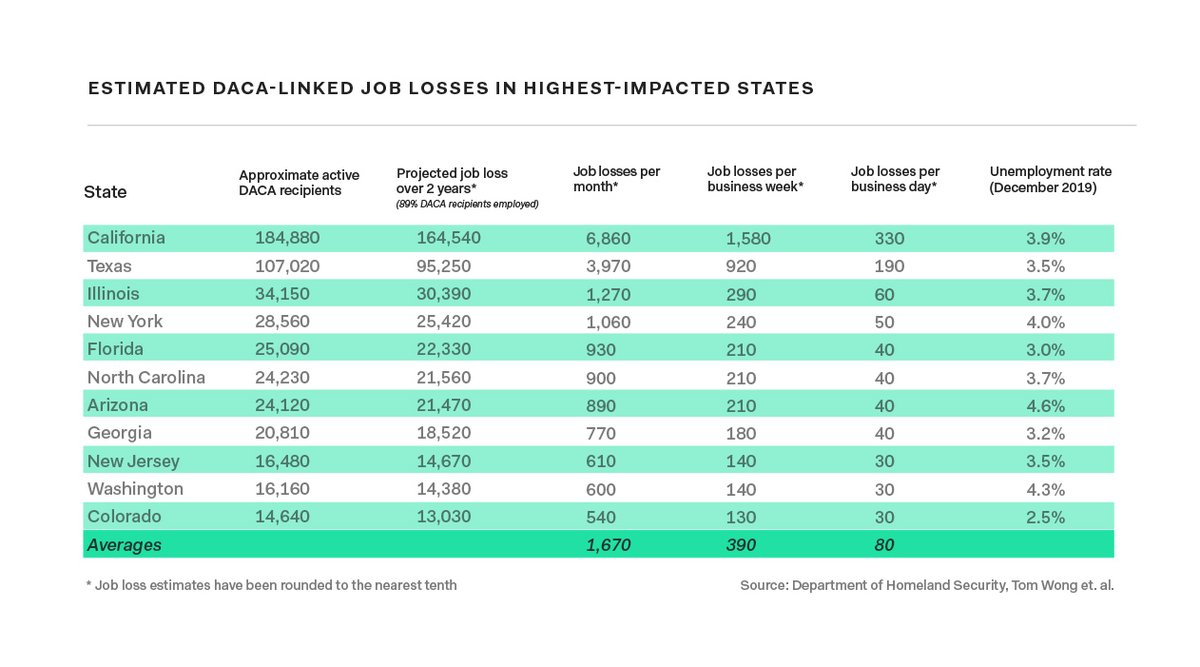
We @FWDus are proud to sign on to this brief in defense of the #H4EAD program.
H-4 EAD has allowed tens of thousands of people, mostly women, to work & provide for their families while waiting in backlogs. It's a good program that should be preserved.
theverge.com/2021/5/14/2243…
H-4 EAD has allowed tens of thousands of people, mostly women, to work & provide for their families while waiting in backlogs. It's a good program that should be preserved.
theverge.com/2021/5/14/2243…
H-4 EAD is crucial for many immigrant families, allowing spouses of temporary workers, many of them highly educated and skilled themselves. It allows them to continue their own careers, contributing their skills and integrating into their communities.
fwd.us/news/h4ead/
fwd.us/news/h4ead/
H-4 EAD also boosts our global competitiveness. Excessive delays in the immigration process make it difficult to attract and retain global talent - programs like this mitigate the impact of those delays and support aspiring immigrants as they move through the process.
Allowing H-4 EAD to end and forcing these individuals out of the workforce would have significant negative economic impacts. Billions lost in economic revenue and lost jobs from H-4 entrepreneurs who have to close up shop. 

We're grateful to @Google for their leadership in defending H-4 EAD and pushing for fair and timely renewal of H-4 EADs for those who have been granted it. We will continue to fight for H-4 spouses and these critical programs.
I'm hoping we will see Congress formalize work authorization for H-4 holders, and take steps to draw down the backlogs that necessitated the rule in the first place. It's a simple, commonsense way to expand and improve immigration.
fwd.us/news/future-im…
fwd.us/news/future-im…
• • •
Missing some Tweet in this thread? You can try to
force a refresh





